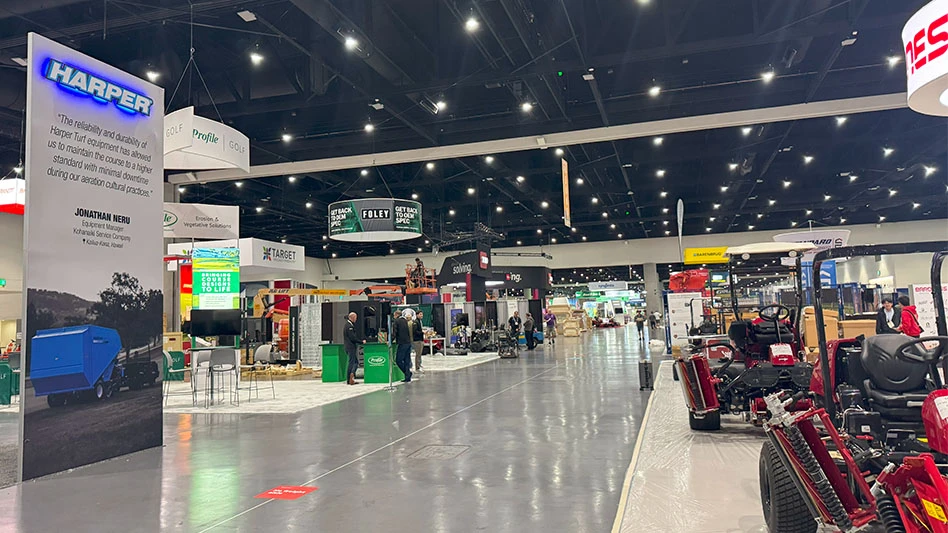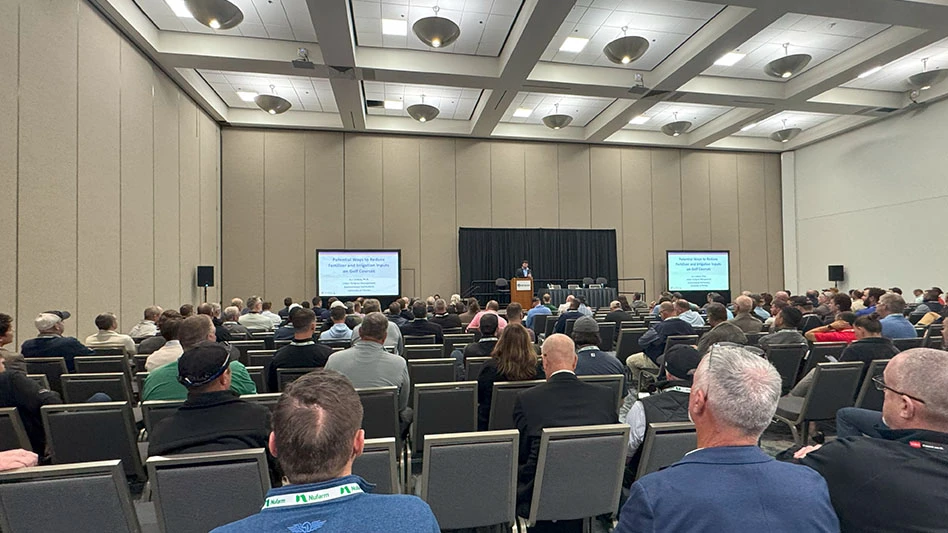Logic says by this time of year maintaining golf courses should be a breeze. Routines should be well established, and everyone should be in a groove. My experience, however, is that the opposite often is true.
Why? Weather is a factor but not the only one. Your seasonal workers, and perhaps your full-time workers (including yourself), are beginning to think about the next step in their lives – back to school, to their regular routine, to cooler weather, the next season at the course – and the current job is becoming boring and old.
Although frustrating, this decrease of focus and performance is natural. So what does a golf course superintendent do? The responses I observe fall into two categories:
1. Accept a decline of effort and performance justifying the season is almost over.
2. Reprimand employees for their poor attitude and performance.
Neither works because neither represents the appropriate feedback response. The first violates the point good performance should always be treated differently than poor performance.
A reprimand should be reserved for situations in which poor performance is caused by the employee’s lack of motivation, energy, concentration, focus, etc. On the surface, that’s the case here, but employees aren’t losing focus intentionally – their attention is being diverted from the present to the future. In response, you need to take steps to increase employee focus.
1. Copious amounts of positive feedback. During a recent GCSAA Web cast, I asked superintendents how many times they provided positive feedback during the past 24 hours. The most common response was once or twice. Few said five or more. Positive feedback costs nothing and usually enhances the attitude and energy level of the giver and receiver. I recently met with a golf course maintenance employee who said he was so excited by receiving compliments from the assistant superintendent, a golfer and the pro on the same day he woke the next morning before his alarm sounded and arrived at work early.
Increase the quantity of excellent positive feedback to re-enforce and maintain excellent job performance. Also, enhance the effectiveness of your positive feedback by improving its quality. Feedback must be:
• Specific. Instead of saying, “You’re doing a great job,” say, “I just came from the 7th green, and it looks great. The green is perfectly mowed, and the bunkers look fantastic.” The actions or outcomes that are the basis for positive feedback must be clear.
• Timely. Provide the feedback now.
• Genuine. Be sincere. Providing feedback can’t be or appear to be a chore. It’s your job as a superintendent, and you must be excellent at your job just as your expect excellence from your employees.
Be especially conscientious about conveying all positive feedback you receive to your staff. Think how you feel when you receive positive feedback from golfers, pro shop personnel and service reps. Not conveying those compliments to your staff is a huge missed opportunity.
Providing copious amounts of positive feedback isn’t easy. You’ve been trained and are an expert at detecting and solving problems on your course. In a supervisory role, you have to look for more than problems. You have to catch your employees doing something right.
Provide the appropriate positive feedback when your employees succeed. If you do so for the next 21 days, increased feedback should become a habit.
2. Increased nonmonetary compensation. Many of you can’t increase wages or benefits for your employees, so think about compensation as a total rewards system rather than dollars per hour. In a total rewards system, compensation is monetary and nonmonetary. By increasing positive feedback, you have increased the nonmonetary rewards, but you can do more.
Think about compensation as meeting employee needs and wants. What do your employees – probably mostly young, mostly seasonal – need or want on a hot August day? I recently met with each maintenance employee at a golf course. More than half recalled a day three weeks earlier when the superintendent treated them all to an ice cream cone at the clubhouse. Little things are more important than they seem. They carry a large message: You’re valued; you’re important. Here are some compensation ideas:
• Make certain, especially on hot days, everyone has a lot of cool water or other liquids.
• Provide adequate breaks. Research shows more work is finished during a given time when adequate breaks are provided. We all need to relax and regenerate.
• Listen to your employees for ideas that will hit home with them.
• Provide special rewards, which are best provided for a specific accomplishment, such as a great looking course during the hottest weather in three years, a compliment from the best golfer in the region or a specific goal exceeded.
3. Actions that help employees retain job focus. As the season progresses, it’s easy to let everyone fall into a routine that leads to boredom and reduces job focus. To combat entropy:
• Keep everyone learning by maintaining and increasing training for new tasks and redirection to exceed expectations on current tasks.
• I’m amazed at how many seasonal employees return to golf courses year after year. This might be the time to provide new opportunities to seasonal employees to see how hard you wish to recruit or promote them for next season.
• Provide opportunities to rotate tasks, especially ones enjoyed, to provide variety.
4. Lead by example. One of my favorite leadership books (“The Leadership Moment” by Michael Useem) highlights examples to develop leadership principles. From the unrelenting determination and optimism of Apollo 13 flight director Eugene Kranz, the author deduces: “Expecting high performance is prerequisite to its achievement among those who work with you. Your high standards and optimistic anticipations will not quarantine a favorable outcome, but their absence will assuredly create the opposite.” Use this principle to lead your course by example:
• Set the tone. Don’t let yourself start thinking “It’s hot! It’s humid! It’s getting boring! The season will soon be over!”
• The hotter it is, the more you would like to be in your office or other cool places. However, the hotter it is, the more you need to be out working with your team.
These thoughts will inevitable seep into the consciousness of everyone (including yourself) as the season (or the really hot weather in the South) winds down. However, you can prevent those feelings from permeating your staff. GCN

Explore the August 2006 Issue
Check out more from this issue and find your next story to read.
Latest from Golf Course Industry
- Foley Company promotes Tyler Barrett
- Beyond the Page 64: To infinity and beyond
- Plant Fitness expands into Asia Pacific markets
- Ace of a decision
- Idaho course joins Concert Golf portfolio
- Central Turf & Irrigation Supply celebrates 35 years in the industry
- Musser Turfgrass Foundation honors University of Georgia researcher
- Riviera CC donates $1 million for fire relief





